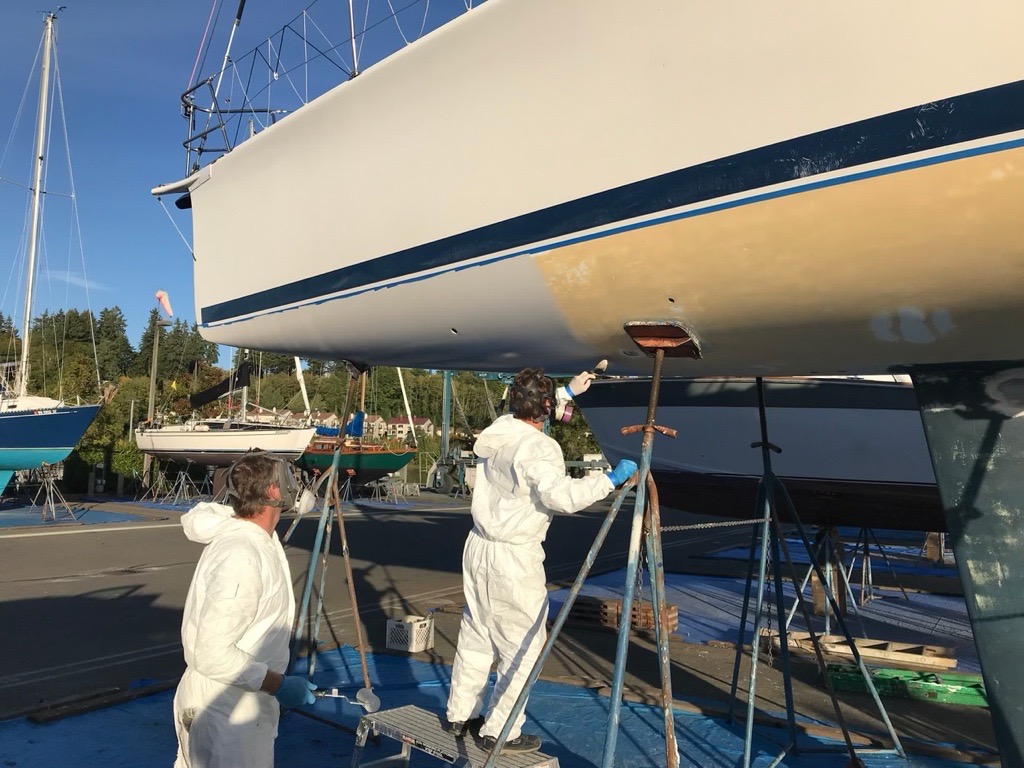Antifouling boat paint laws
Possible copper-based antifouling paint ban postponed
As a result of our third report to the Legislature, the restriction on copper-based antifouling paints will not take effect in 2026. We will continue to study scientific literature and submit a new report by June 30, 2029. Learn more about why this law is postponed.
Irgarol (also known as cybutryne), is another ingredient added to make boat paints more effective. It's been found to be more toxic and harmful to marine life than previously believed. As of Jan. 1, 2023, irgarol paints are banned for use on recreational vessels.

What does this law do?
As part of the law, we agreed to study antifouling paints and how they affect marine organisms and water quality. We studied peer-reviewed science on antifouling paints and their hazards. These reviews showed that non-copper antifouling ingredients might be more environmentally harmful than copper. As a result, the law phasing out copper paints is postponed.
Learn more about our studies: 2024:
- 2024: Antifouling Paints in Washington State: Third Report to the Legislature.
- 2019: Antifouling Paints in Washington State Report and Recommendations.
- 2017: Report to the Legislature on Non-Copper Antifouling Paints for Recreational Vessels in Washington.
Why is this law postponed?
In our third report to the Legislature, we developed hazard-based criteria to determine whether antifouling chemicals are safer than copper. We also identified data gaps and conducted performance testing to evaluate effectiveness of various alternatives. We found that:
- Biocidal antifouling alternatives have remained essentially unchanged since our previous report in 2019.
- Only one antifouling chemical, Sea-Nine, can be considered “safer” than copper, but we lack sufficient data to draw conclusions about its effectiveness.
We also reviewed research and studies on non-biocidal antifouling alternatives. As they are still in early development, most of the needed scientific information on environmental impacts is not yet available. We will continue to study scientific literature and submit a new report by June 30, 2029.
Why are we studying antifouling boat paints?
Elevated copper in marine environments can cause acute toxicity such as mortality of aquatic species. Chronic exposure can lead to adverse effects on survival, growth, reproduction as well as alterations of brain function, enzyme activity, blood chemistry, and metabolism.
While copper is the most common toxic chemical that antifouling boat paints release into the water, our studies also looked at other non-copper ingredients currently on the market, including:
- Zinc pyrithione.
- Irgarol (cybutryne) (banned as of 2023).
- Sea-Nine (DCOIT).
- ECONEA (tralopyril).
There are also non-biocidal options available, such as boat washes, sonic cleaning systems, liner systems, and drive-in dry docks. However, some options are not readily available, and we do not know the performance and tradeoffs of these options yet.
Frequently asked questions
Related links
Contact information
Iris Deng
Natural Resource Scientist
360-480-6555
iris.deng@ecy.wa.gov


